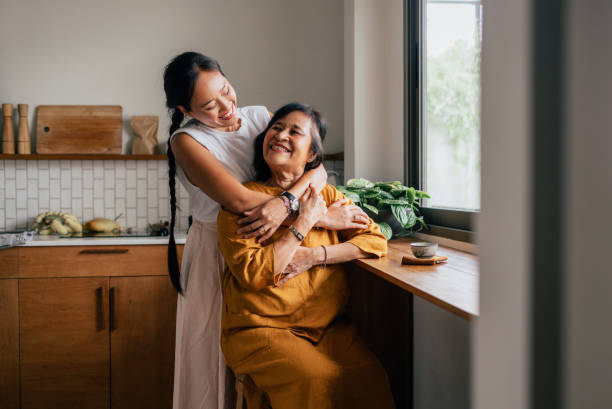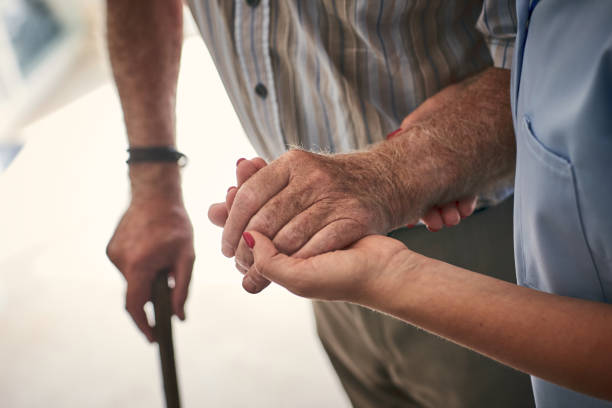Determining responsibility for the care of elderly individuals incapable of self-care can be complex. As our population ages, this topic is becoming increasingly relevant, touching lives across the globe. The responsibility often falls on family members, but it can also be shared by medical professionals, social workers, and the broader community. However, the answer to this question can vary greatly depending on cultural norms, societal expectations, and legal aspects.
Let’s dive deeper into the many factors that influence who should shoulder this significant responsibility.
Contents
Cultural Norms and Responsibilities in Elderly Care
In many cultures, it is expected that younger family members will take on the responsibility of caring for their elderly relatives. This is often seen as a way to honor and respect the older generation and repay them for their years of hard work and sacrifice. However, this expectation can also create immense pressure on family members who may not have the financial or emotional capacity to provide care.
Additionally, cultural norms can differ greatly from one society to another, making it challenging to define a universal standard for elderly care.
Medical Professionals and Social Workers in Elderly Care
In situations where family members are unable or unwilling to take on the responsibility of caring for an elderly member, medical professionals and social workers may play a crucial role. They can provide essential services such as home care, assisted living facilities, and hospice care. These professionals have the necessary training and experience to handle the physical, emotional, and medical needs of elderly individuals.
Involvement of the Broader Community
In some cultures, caring for the elderly is viewed as a collective responsibility that extends beyond just immediate family members. Neighbors, friends, religious organizations, and community groups may come together to offer support and assistance in the care of elderly individuals. This can help alleviate some of the burden on family members while also providing a sense of connection and belonging for the elderly person.
Legal Aspects in Determining Responsibility
In addition to cultural norms and societal expectations, legal aspects play a significant role in determining responsibility for caring for an elderly person. Laws and regulations vary from country to country, but they often outline the rights and responsibilities of both family members and care providers in elderly care.
In some cases, legal guardianship may be necessary if an elderly individual is deemed mentally incapable of making decisions for themselves. This can further complicate the issue of responsibility since it may involve multiple parties with differing opinions on what is best for the elderly person.
There are also financial considerations when it comes to determining responsibility for elderly care. In some cases, government assistance or insurance coverage may be available to alleviate the cost burden on family members or care providers.
The Importance of Open Communication and Collaboration

Ultimately, there is no one answer to who should be responsible for caring for an elderly person who cannot care for themselves. Each situation is unique and requires open communication and collaboration between all parties involved. Family members, medical professionals, social workers, and the broader community should work together to find the best solution for the elderly individual in need of care.
Tips for Handling the Responsibility of Elderly Care
Caring for an elderly loved one can be emotionally and physically draining, but it is also a deeply rewarding experience. Here are some tips for handling this responsibility with compassion and grace:
- Seek support from family members, friends, or support groups.
- Take care of your physical and mental health to avoid burnout.
- Communicate openly and honestly with all parties involved.
- Educate yourself on the legal aspects of elderly care in your area.
- Ask for help when needed, whether it’s from professionals or community resources.
- If possible, involve the elderly individual in decision-making and respect their wishes.
It’s best to approach the responsibility of caring for an elderly person with patience, empathy, and a willingness to seek help when needed. Remember that this is a shared responsibility that requires collaboration and support from all parties involved. Together, we can ensure that our aging population receives the care and respect they deserve.
Conclusion
The responsibility for caring for an elderly person who cannot care for themselves is a complex and multifaceted issue. Cultural norms, societal expectations, medical professionals, social workers, the broader community, and legal aspects all play a role in determining who should take on this significant responsibility. Ultimately, it is crucial to approach this topic with compassion and understanding, recognizing that there is no one-size-fits-all solution.
So, it is essential to have open and honest discussions about elderly care within families and communities to find the best possible solutions for all involved parties. With empathy and cooperation, we can ensure that our aging population receives the care and support they need in their golden years.

